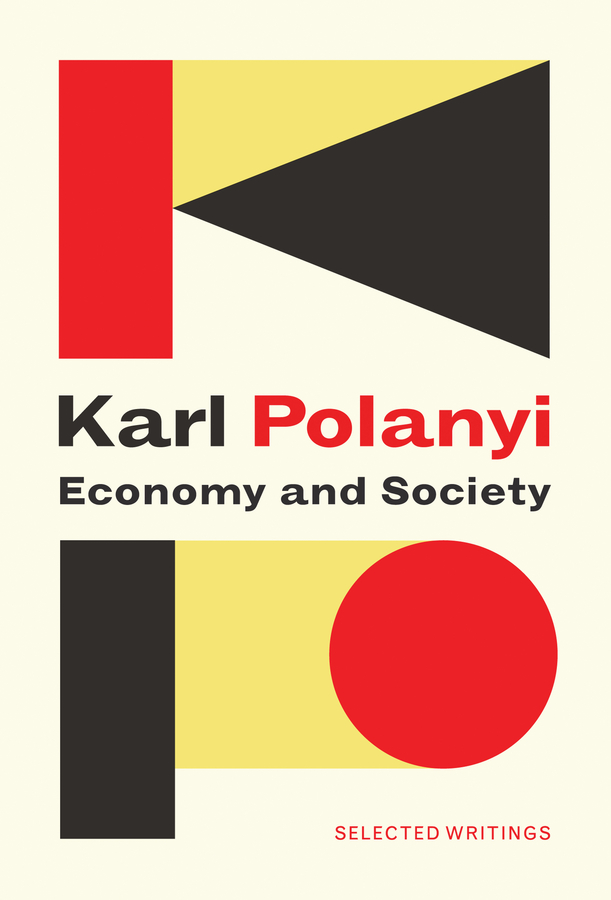Электронная книга: Karl Polanyi «Economy and Society: Selected Writings»

|
Few figures are more crucial to understanding the upheavals of our contemporary era than Karl Polanyi. In a world riven by social and economic crises, from rising inequality to the decay of democratic institutions and profound technological disruption, Polanyi’s path-breaking account of the dynamics of market capitalism and his defence of society and nature against the dangerous tendencies of the market capitalist system are more relevant than ever. This book brings together Polanyi’s most important articles and essays to give a unique selection of his essential shorter writings, mixing classic texts with significant but previously little-known pieces. It highlights the coherence and richness of Polanyi’s theoretical and political approach, making it indispensable for understanding his overarching intellectual contribution. The volume includes his interwar writings, which deal with the world economic crisis and the socialist alternative to conservative and fascist developments; his reflection on political theory and the international situation after the war; and his comparative studies of economic institutions. Polanyi’s political writings are complemented and supported by the critique of economic determinism and what he termed ‘our obsolete market mentality’. This book is an invaluable companion to Polanyi’s masterpiece, The Great Transformation, and an essential resource for students and scholars of political economy, sociology, history and political philosophy. Издательство: "John Wiley&Sons Limited"
ISBN: 9781509523320 электронная книга Купить за 4556.07 руб и скачать на Litres |
Karl Polanyi
Karl Paul Polanyi (
Life
Early life
Karl Polanyi, brother of chemist and philosopher
Polanyi was a
In the United States
He fled
After the war Polanyi received a teaching position at
Legacy
Polanyi is remembered today as the originator of
His book "The Great Transformation" also became a model for historical sociology. His theories eventually became the foundation for the
Works
*"
*"Trade and Markets in the Early Empires" (1957, edited and with contributions by others)
*"
*"Primitive, Archaic, and Modern Economics: Essays of Karl Polanyi" (1968, collected essays and selections from his work).
*"The Livelihood of Man (Studies in social discontinuity)(Academic Pr; New Ed edition (November 1977)
Notes
External links
* [http://artsandscience.concordia.ca/polanyi/about/ The Karl Polanyi Institute of Political Economy] - The Karl Polanyi Institute of Political Economy at Concordia University web site.
* [http://mises.org/story/1607 An Austrian School rebuttal of The Great Transformation] - From the
* [http://www.eh.net/bookreviews/library/polanyi.shtml Karl Polanyi, The Great Transformation: The Political and Economic Origins of Our Time (1944) Review Essay by Anne Mayhew, College of Arts and Sciences, University of Tennessee]
* [http://cepa.newschool.edu/het/profiles/polanyi.htm Profile on Karl Polanyi] - On the History of Economic Thought Website
* [http://www.karipolanyilevitt.com/bio.shtm Kari Polanyi Levitt]
Источник: Karl Polanyi
Другие книги схожей тематики:
| Автор | Книга | Описание | Год | Цена | Тип книги |
|---|---|---|---|---|---|
| Karl Polanyi | Economy and Society: Selected Writings | Few figures are more crucial to understanding the upheavals of our contemporary era than Karl Polanyi. In a world riven by social and economic crises, from rising inequality to the decay of… — John Wiley&Sons Limited, электронная книга Подробнее... | 4556.07 | электронная книга |
См. также в других словарях:
Art, Antiques, and Collections — ▪ 2003 Introduction In 2002 major exhibitions such as Documenta 11 reflected the diverse nature of contemporary art: artists from a variety of cultures received widespread recognition for work ranging from installation to video to painting … Universalium
SUBJECTS AND ISSUES — Marxism and Philosophy: Dialectics and Materialism ■ Balibar, Etienne. The Philosophy of Marx. London: Verso, 1995. ■ Bhaskar, Roy. Dialectics. London: Verso, 1992. ■ Callinicos, Alex. Marxism and Philosophy. London: Oxford University Press,… … Historical dictionary of Marxism
Hegelians (The Young), Feuerbach, and Marx — The Young Hegelians, Feuerbach, and Marx Robert Nola Largely through lectures delivered at the University of Berlin, Hegel built up a circle of followers, mainly contemporaries or pupils, who were intent on working out aspects of the… … History of philosophy
Anarchism and anarcho-capitalism — This article discusses similarities and differences between anarcho capitalism and other types of anarchism. Integrating Austrian economics into individualist anarchism Murray Rothbard was a student and disciple of the Austrian economist Ludwig… … Wikipedia
Anarchism and capitalism — Articleissues citations missing = October 2007 OR = October 2007 rewrite = October 2007 weasel = October 2007Though some anarchists advocate free market, laissez faire capitalism, [Sheldon, Garret Ward (2001). Anarchism. Encyclopedia of Political … Wikipedia
MARX AND ENGELS: THE FOUNDERS OF MARXISM — ■ The following lists of writings are not comprehensive but do include all the major works. In particular they do not include the numerous articles written for such publications as the Neue Rheinische Zeitung and the New York Daily Tribune.… … Historical dictionary of Marxism
